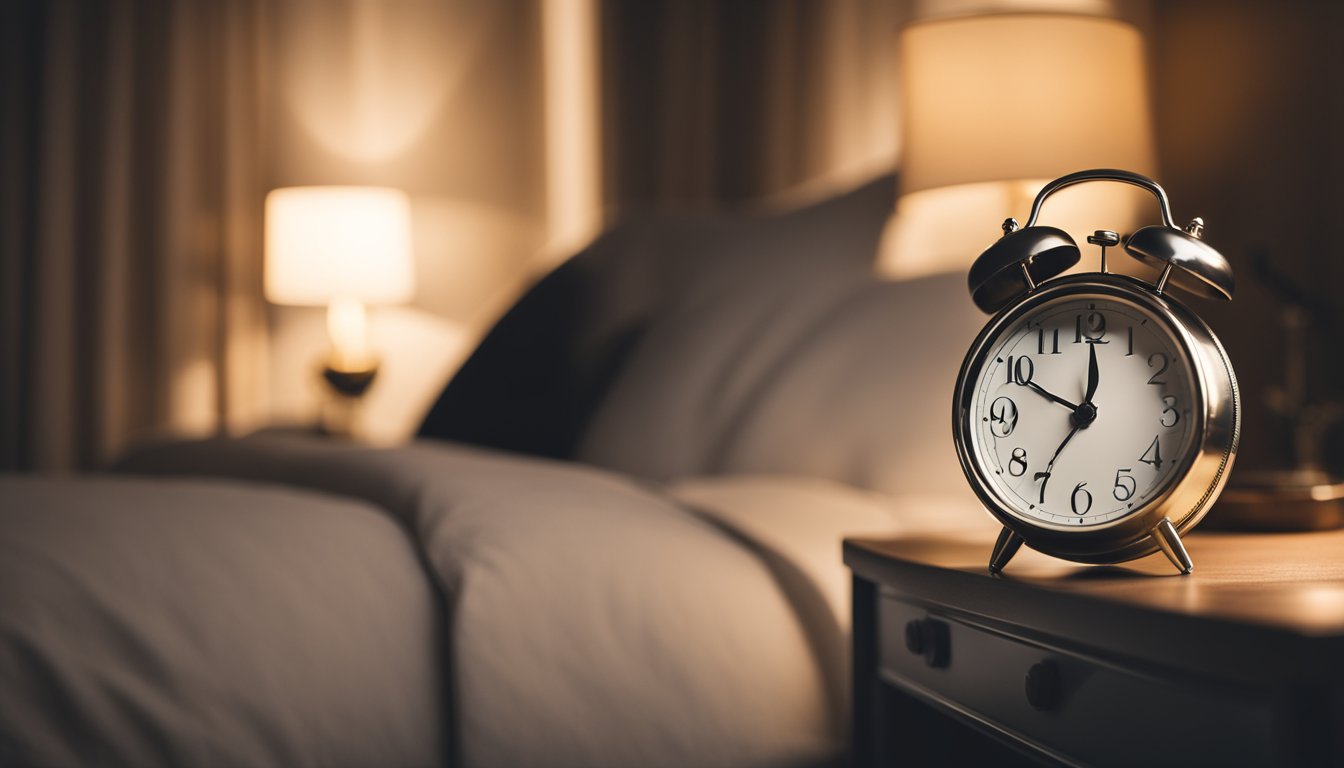Late updated: 30 Jul 2024 14:07
Written by: Ella Thompson
Impact Of Sleep On Addiction Recovery: Enhancing Mental and Physical Well-being
Sleep plays a critical role in addiction recovery, significantly affecting both the physical and mental well-being of individuals on this challenging journey. Quality sleep not only aids the body in healing but also reinforces mental resilience needed to overcome addiction. Disrupted sleep patterns are common during recovery, caused by withdrawal symptoms and adjustments in the body’s sleep-wake cycle. Poor sleep can lead to heightened irritability, poor concentration, and increased risk of relapse.

For many, the early stages of recovery introduce new sleep challenges, making it crucial to establish healthy sleep habits. Setting a consistent sleep schedule and creating a restful environment can help individuals stabilise their sleep patterns. This stability is essential for cognitive functions like learning and memory, which are vital for effective recovery from substance use disorders.
As we navigate the complexities of addiction recovery, it becomes clear that good sleep habits are more than just a luxury—they’re a necessity. By fostering better sleep, we strengthen our recovery process, mitigate relapse risks, and enhance our overall quality of life.
Key Takeaways
- Sleep is crucial for both physical and mental healing in addiction recovery.
- Establishing good sleep habits can stabilise sleep patterns and support cognitive functions.
- Fostering better sleep enhances recovery outcomes and mitigates relapse risks.
The Role of Sleep in Recovery Process
Sleep is critical in addiction recovery, positively impacting both mental and physical health. When prioritised, quality sleep aids emotional, cognitive, and physical healing, reducing the risk of relapse and improving overall well-being.
Understanding Sleep and Addiction
Addiction disrupts normal sleep patterns. Substances like alcohol can initially induce sleep but significantly disturb REM sleep, leading to insomnia and frequent awakenings. Sleep deprivation not only impairs cognitive function but also exacerbates stress, anxiety, and depression, creating a vicious cycle that hinders recovery.
Sleep disturbances are common during withdrawal periods. As the body adjusts to the absence of addictive substances, regaining a healthy sleep pattern becomes essential.
Sleep and Mental Health in Recovery
Quality sleep plays a pivotal role in emotional and mental well-being during recovery. Insufficient sleep can heighten anxiety and depression symptoms, while adequate rest supports mood regulation.
Better sleep enhances our ability to manage stress and reduces the likelihood of emotional triggers that may lead to relapse. Regular sleep patterns contribute to improved cognitive function, aiding memory retention and sharper decision-making, essential for staying on the path to recovery.
Physical Health Benefits of Quality Sleep
Adequate sleep is vital for physical health and restoration during recovery. It supports the immune system, aiding in the healing of the body from the damage caused by substance abuse. Regular, quality sleep promotes healthier physical activity levels, which can further support recovery by boosting energy and improving overall physical well-being.
Proper sleep assists in regulating hormones, managing weight, and maintaining cardiovascular health—all crucial for a holistic recovery process. Emphasising sleep hygiene can accelerate physical healing, making us stronger both mentally and physically as we navigate through addiction recovery.
Improving Sleep for Enhanced Recovery Outcomes

Quality sleep is fundamental to enhancing addiction recovery outcomes. By adopting healthy sleep habits, leveraging treatment and support strategies, and making lifestyle adjustments, individuals can significantly improve their chances of successful recovery.
Developing Healthy Sleep Habits
Establishing consistent sleep routines and habits is crucial for addiction recovery. Prioritising a regular sleep-wake cycle can help regulate the body's internal clock. Sleep hygiene practices such as creating a relaxing bedtime routine, avoiding screen time before bed, and reducing stimulant intake like caffeine and nicotine contribute to better sleep quality.
Incorporating relaxation strategies before bed can also promote restful sleep. Techniques such as meditation, deep breathing exercises, or reading a book can help signal to the brain that it is time to wind down. Maintaining a comfortable sleep environment with appropriate lighting, temperature, and a supportive mattress can further enhance sleep quality.
Treatment and Support Strategies
Various treatment options can support improved sleep during the recovery process. Healthcare professionals might recommend cognitive behavioural therapy for insomnia (CBT-I), a drug-free approach that helps patients change thoughts and behaviours impacting sleep.
Medications can sometimes be necessary. Melatonin supplements may aid in regulating sleep cycles, while other prescribed sleep aids should be used under medical supervision to avoid dependency. For individuals experiencing sleep apnoea, the use of continuous positive airway pressure (CPAP) devices can lead to significant improvements in sleep quality.
Working closely with a healthcare professional ensures that the most appropriate and safest treatment is chosen. Continuous monitoring and adjustments to the treatment plan will help address evolving sleep challenges throughout the recovery journey.
Lifestyle Adjustments and Environmental Factors
Making broader lifestyle changes complements sleep and addiction recovery. Regular physical activity plays a vital role. Exercise not only improves overall health but also promotes better sleep by reducing stress and anxiety.
Creating a conducive sleeping environment is another critical factor. Reducing exposure to blue light from screens, ensuring a quiet and dark room, and maintaining a comfortable temperature can make a significant difference. Simple actions like investing in quality bedding or soundproofing can contribute greatly.
Limiting substance intake like caffeine and nicotine, particularly in the hours leading up to sleep, is also essential. These substances can disrupt sleep patterns and undermine recovery efforts. By focusing on these lifestyle adjustments, individuals can create a more supportive environment for both sleep and recovery.
Frequently Asked Questions

Quality sleep plays a vital role in addiction recovery. Sleep supports physical and mental healing, and disturbances in sleep patterns can both hinder recovery and increase the risk of relapse.
How does sleep contribute to the rehabilitation process for addicts?
Sleep is essential for physical and mental restoration. During sleep, our bodies repair tissues and our brains process emotions and memories. For those in addiction recovery, this repair and processing are crucial to regaining health and functioning.
In what ways does lack of sleep affect individuals undergoing addiction recovery?
Lack of sleep can lead to issues like weariness, irritability, and difficulty concentrating. These symptoms can exacerbate emotional stress and hinder progress in recovery. Insomnia or disrupted sleep patterns can also contribute to feelings of anxiety and depression, complicating the rehabilitation process.
What is the significance of sleep in the context of relapse prevention?
Adequate sleep can reduce the risk of relapse by helping manage mood and stress levels. Negative emotions and heightened stress are more easily managed when we are well-rested, enabling individuals to focus on maintaining their recovery goals rather than succumbing to cravings or triggers.
How do sleep patterns influence treatment outcomes in addiction recovery?
Stable and healthy sleep patterns can significantly enhance treatment outcomes. Consistent sleep enables better emotional regulation, cognitive functioning, and overall mental well-being, all of which are critical for effectively engaging in therapy and other recovery activities.
What are the strategies to improve sleep quality for those in addiction recovery?
There are several strategies to improve sleep quality:
- Maintain a regular sleep schedule.
- Create a restful sleep environment.
- Avoid stimulants like caffeine and nicotine close to bedtime.
- Engage in relaxation techniques such as meditation or deep-breathing exercises.
Can enhancement of sleep aid in the management of withdrawal symptoms?
Improving sleep can alleviate some withdrawal symptoms by promoting relaxation and restoring balance to the body's systems. Effective sleep can help mitigate symptoms such as irritability, anxiety, and physical discomfort, making the withdrawal process more manageable.
